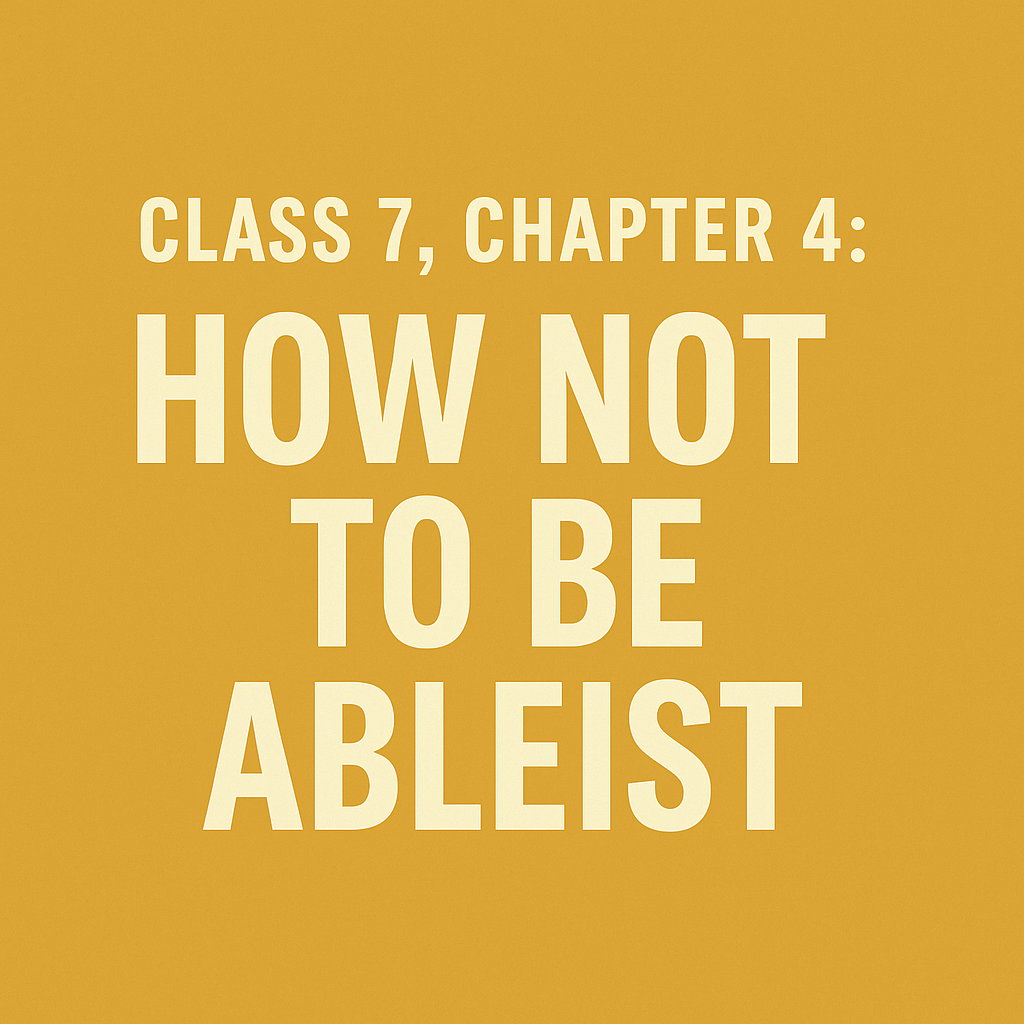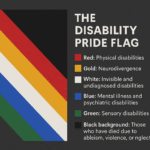The other day, I was at a shopping mall in Delhi, minding my own business, when a man leaned over to his son and whispered,
“See beta, God made you normal. Be grateful.”
Ah, yes, the magical moment when I’m expected to vanish gracefully, like a feel-good footnote in your able-bodied narrative.
I turned to him, smiled sweetly, and said,
“And God made me clever enough to hear you—and funny enough to survive this nonsense.”
His son laughed. I wheeled away. Another day, another free moral lesson gifted to society.
What Even Is Everyday Ableism?
Let’s get this out of the way: ableism isn’t always someone shouting, “You can’t do that!” Sometimes it’s more subtle. Sometimes, it comes in the form of compliments soaked in condescension, or well-meaning advice that makes you want to roll off a cliff.
Here in India, ableism is marinated in good intentions, religious karma theories, and the belief that disabled people are either:
- Suffering saints.
- Cursed in a past life.
- In need of a special TV episode.
Welcome to Moral Science Class: How Not to Be Ableist
(You know, the chapter we never had in school.)
Let’s look at the curriculum:
Lesson 1: “You’re so brave!”
Thanks, I guess? I braved traffic, potholes, stray dogs, and stairs with no ramp. Truly a warrior.
Lesson 2: “Everything happens for a reason.”
So your reason is… my life? Your spiritual enlightenment shouldn’t require my weak muscles or spinal condition.
Lesson 3: “You’re lucky it’s not worse.”
As if pain only counts when it reaches a certain threshold.
As if I need to earn your empathy by suffering more.
Not every wound has to bleed in public to be real.
Lesson 4: “You should share your story online! So inspiring!”
Translation of what it means: “Please turn your life into a highlight reel that makes me feel better about mine.”
The Indian Edition: Extra Chapters You Didn’t Ask For
“Say divyang, not disabled! It’s respectful!”
Actually, it’s confusing and infantilizing. Just say “disabled.” We’re not made of crystal.
“Can you cook?”
“Yes. And even sauté sarcasm. And blog posts that bite back.”
“They never say it to my face, of course. That would be too bold. Instead, it’s whispered among relatives like a sacred family secret: ‘What will happen to her when her mother is not there?“
“Ah, the classic family thriller plot: ‘Disabled Girl Left Alone in a Cruel World Without Mommy.’
Relax.
I’m disabled, not doomed.
I’ve outlived your expectations before—I’ll survive your whispers too.”
Jokes Aside, Ableism Isn’t Harmless
Here’s the truth: sometimes ableism is vicious, but often it’s just clueless. And while I have a sense of humor, I’m also tired of having to laugh off ignorance that slices deep.
No, we weren’t taught how to talk to or about disabled people in school.
But maybe we should’ve been—right between “Our Festivals” and “The Water Cycle.”
Okay, But What Can You Do?
If you’ve ever said or thought any of the above, breathe. It’s not about shaming. It’s about changing.
Here’s your real-life Chapter 4 summary:
- Don’t assume. Ask.
- Don’t pity. Respect.
- Don’t overshare divine theories. Just hold the door.
- Don’t include us for the photo-op. Include us always.
And most of all—listen to disabled voices. Not just when it’s trending, but all the time.
Final Bell Rings..
Disability isn’t the problem.
Ableism is.
So if you really want to help, don’t just clap for us at awards shows.
Sit with us. Work with us. Learn with us. Laugh with us (not at us).
We’ve already passed every life exam society throws at us.
It’s your turn to catch up.
“My disability doesn’t make me less. But your mindset might.”
— A woman in a wheelchair who’s also your new favorite blogger 😉



